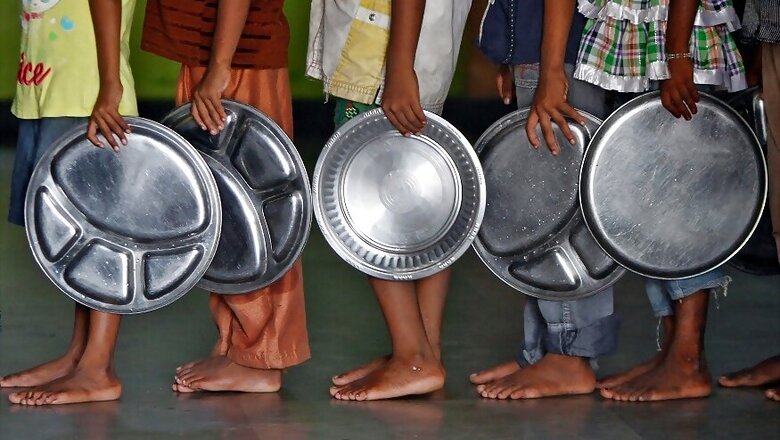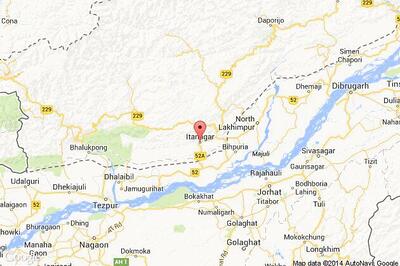
views
New Delhi: Over 80 per cent adolescents in India suffer from "hidden hunger", a form of undernutrition, and less than 10 per cent of boys and girls consume fruits and eggs daily, according to a new UNICEF report released on Thursday.
Hidden hunger is a deficiency of one or more micronutrients such as iron, folate, zinc, vitamin A, vitamin B12 and vitamin D.
The UNICEF's report, 'Adolescents, Diets and Nutrition: Growing Well in a Changing World', is based on the recently released Comprehensive National Nutrition Survey (CNNS).
An adolescent is defined as an individual aged 10-19 by the UN.
UNICEF Executive Director Henrietta Fore called on the Indian government to translate the data contained in the report into action on ground.
"From UNICEF perspective, we urge three key interventions in adolescents diets, behaviours and services that can break this cycle of poor nutrition," she said at the launch of the report at NITI Aayog.
The new report reveals that almost all adolescents in India have unhealthy or poor diets and it is the main cause for all forms of malnutrition.
"Fruits and eggs are consumed daily by less than 10 per cent of boys and girls. Over 25 per cent of adolescents reported no consumption of green leafy vegetables even once a week," the report said.
The report further said that milk products are consumed by 50 per cent of adolescents daily.
"Growing incomes and increased spending on food has translated to greater consumption of fried foods, junk foods, sweets and aerated drinks. Today, 10 to 19-year-olds in every Indian state face an increased risk of diabetes and heart disease," it said.
The report found that adolescent girls especially suffer multiple nutritional deprivations.
"More girls suffer from shortness than boys. Anaemia affects 40 per cent of adolescent girls, compared to 18 per cent of boys, and worsens as they get older," the report said.
UNICEF Executive Director Fore suggested that firstly, action needs to be taken on school premises where adolescent children spend most of their time.
"For example, it means moving from a cereal-based mid-day meal in schools to meals that are more nutrient dense," she said.
"Secondly, we must work with academia to tap into the growing expertise in nutrition, diets and agriculture," she said.
In the third intervention, Fore called for more private sector investment and engagement in adolescent nutrition.
Rajiv Kumar, the vice-chairman of the NITI Aayog, said behavioural change is very crucial for dealing with malnutrition.
Kumar said NITI Aayog is closely working with converging ministries through Poshan Abhiyan to tackle malnutrition.
NITI Aayog CEO Amitabh Kant said the government has working towards tackling malnutrition through a number of programmes but they have not given the desired results.
"This is largely because we have not been able to bring the level of convergence, the extent of integration across a vast range of departments that work towards providing nutrition," Kant said.

















Comments
0 comment